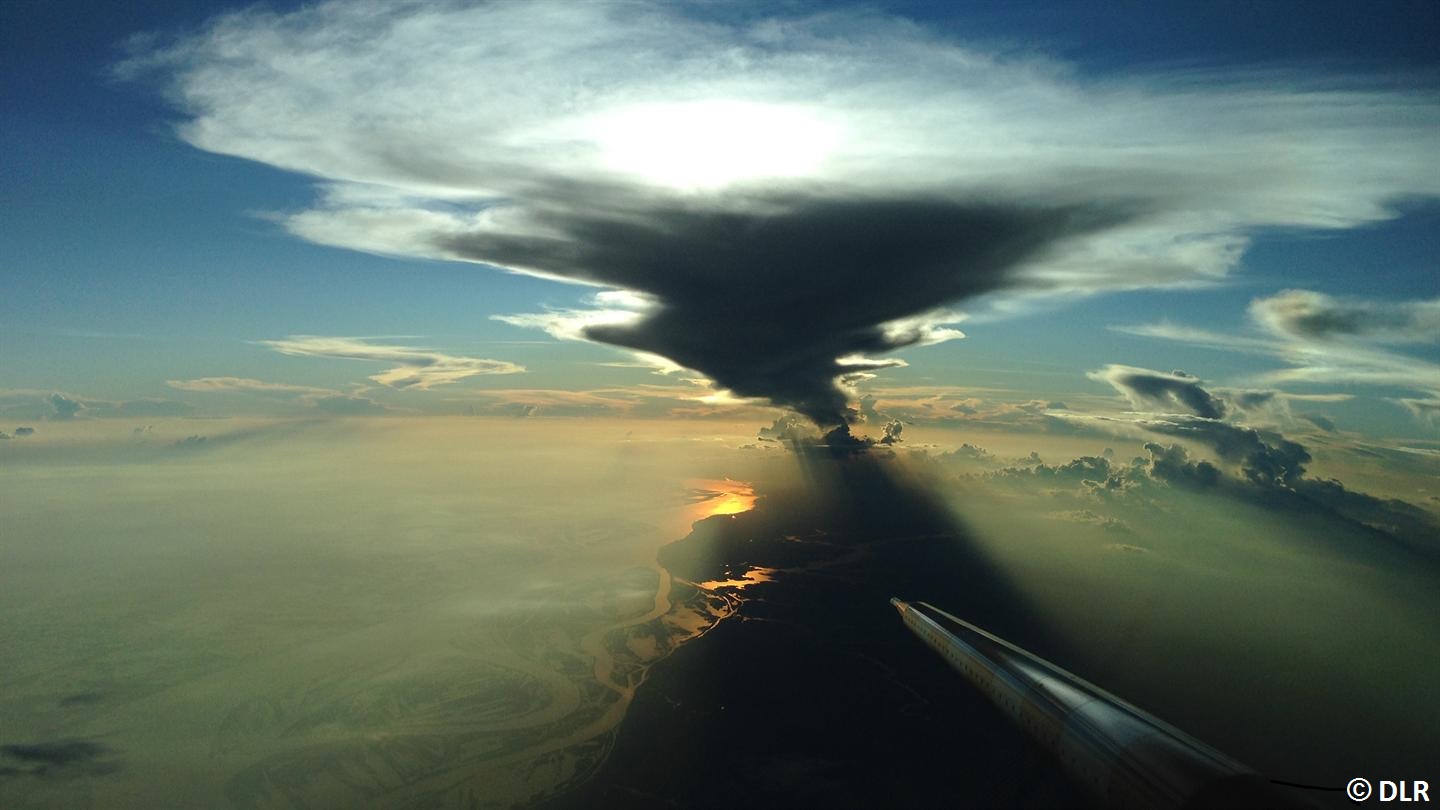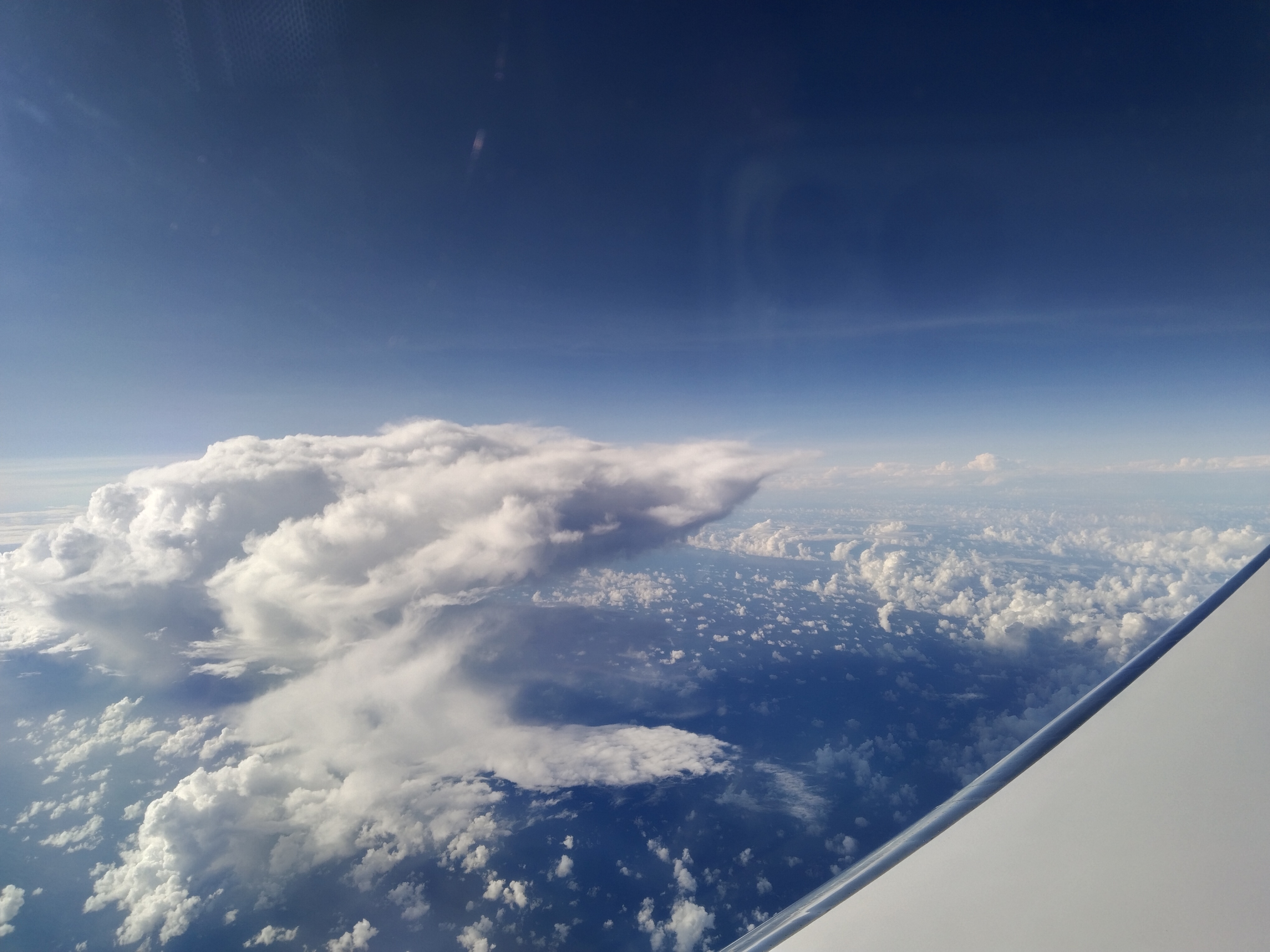CAFE-Brazil

CAFE-Brazil (Chemistry of the Atmosphere: Field Experiment in Brazil) is a HALO mission that took place in winter 2022/23 above the Amazon rainforest. Researching the upper tropical troposphere is of high importance because previous studies (e.g., Williamson et al.) show elevated aerosol particle concentration in this area compared to the middle and lower troposphere. These particles can be transported into the stratosphere, where they contribute to the global radiation balance and, thus, the global climate. Additionally, the particles can sink and contribute to the regional climate and water balance of the Amazon rainforest as cloud condensation nuclei.
Various research flights during the CAFE-Brazil campaign contributed to the generation of altitude profiles for different gases. Additionally, it was possible to measure air masses that had been transported to the upper troposphere by deep convective events. The differences between day and nighttime processes could be studied.

Physical parameters like pressure and temperature, as well as trace gases and aerosol particles, were measured continuously to understand the processes in the atmosphere. The CI-APi-TOF operated by our group could measure sulfuric acid, methanesulfonic acid, and also highly oxygenated organic compounds. Especially interesting was the detection of organonitrates, which could be directly linked to the production of particles. It was subsequently possible to establish a detailed chemical mechanism for the nucleation of aerosols in the upper troposphere above the Amazon. This proposed process will be tested under laboratory conditions in the CLOUD chamber at CERN.
The conducted measurements can be very helpful in the future to improve the representation of aerosols in climate models. Cooperation with modeling groups both nationally and internationally is crucial to achieve this goal.



